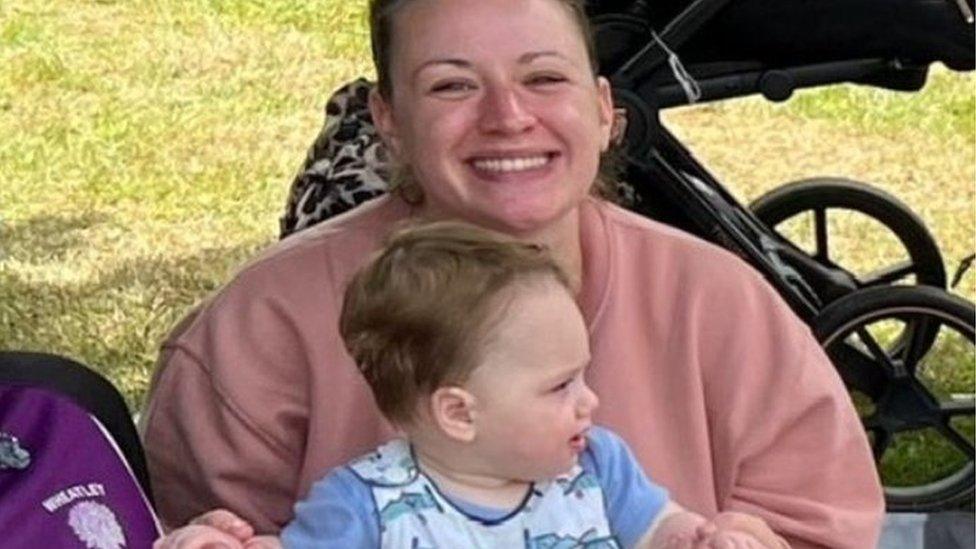Bristol state-of-the-art incubator to help critically ill babies
- Published
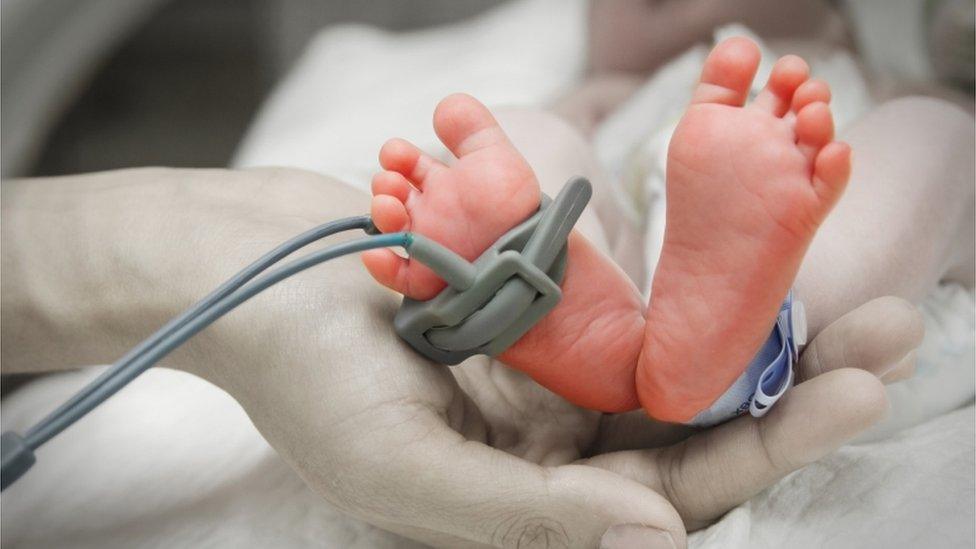
The incubator maintains environmental conditions suitable for a newborn baby
Critically ill babies will get to the specialist services they need more quickly thanks to three new bespoke helicopter incubators.
They will be used by neonatal transport teams covering the South West, South of England and Yorkshire.
They could not previously use a helicopter to transfer smaller infants, who need higher levels of support.
The incubator was developed and funded by the Children's Air Ambulance charity which said it was "a huge achievement".
Lead nurse for Bristol's Neonatal Emergency Stabilisation Team (Nest), Patrick Turton, said the new incubator would allow the team to transport many more babies via air.
"This incubator means we will be able to get the smaller more fragile babies to the specialist services they need more quickly, reducing the anxiety and worry of the parents, and ultimately reducing the time taken for the infants to get the specialist support they need," he said.
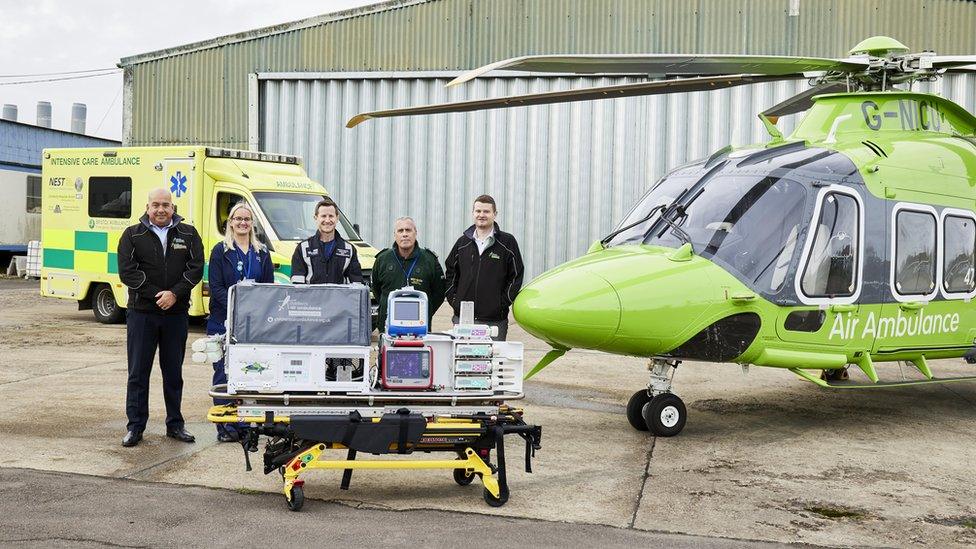
The new incubator can be used in TCAA's specialist air ambulance as well as land ambulances
The Children's Air Ambulance charity (TCAA) has designed three of the bespoke transport systems which have been provided to specialist NHS transport teams across England free of charge.
They will go to the teams at Nest, Embrace Yorkshire and Humberside Infant and Children Transport Service and Southampton Oxford Neonatal Transport.
A spokeswoman for the charity said that the incubators remain with clinical teams in their respective hospitals, but can be rapidly installed into its air ambulance when needed.
The incubator "really comes into its own" when used in TCAA's new AgustaWestland 169 helicopter, which has a larger cabin, she added.
"This space means that a parent doesn't have to move if a clinician needs access to care for their child, meaning they can remain close to their child the entire flight, putting their mind at ease," she said.
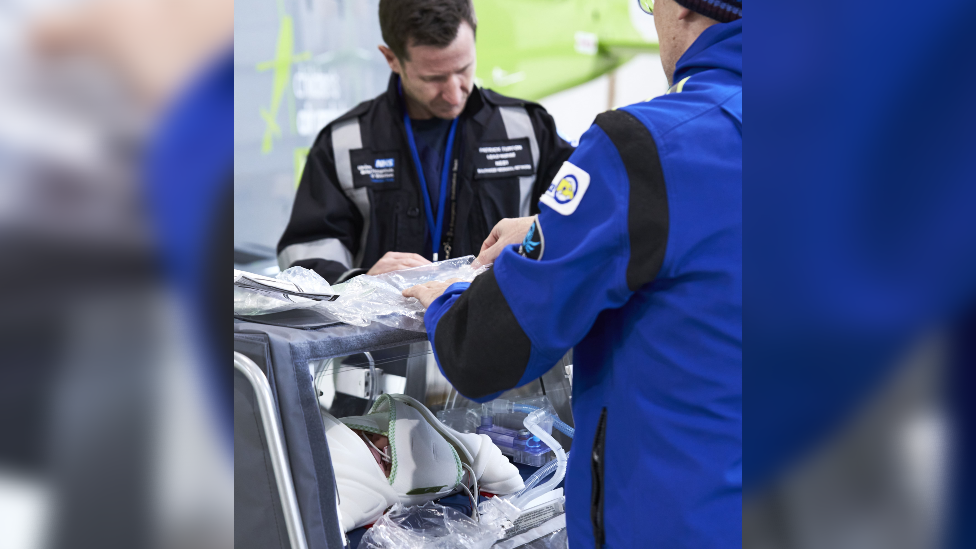
The new equipment will allow more babies to be transferred to hospital by air
TCAA's helicopter is based in Oxfordshire but flies all over the country helping NHS teams transport babies and children to specialist neonatal units.
Head of operations for TCAA, Alfie Daly, said: "A tremendous amount of work has gone into this project which is fundamentally based on NHS clinicians' requirements to ensure they have everything they need to provide the best possible patient care.
"It's a huge achievement for TCAA and a lifesaving piece of equipment."

Follow BBC West on Facebook, external, Twitter, external and Instagram, external. Send your story ideas to: bristol@bbc.co.uk , external
Related topics
- Published23 November 2022
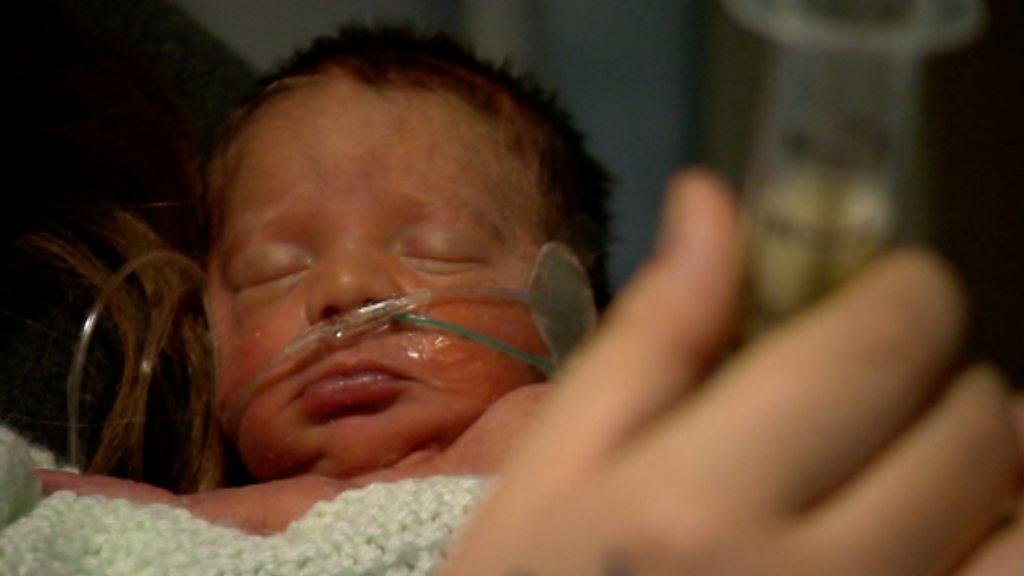
- Published7 October 2022
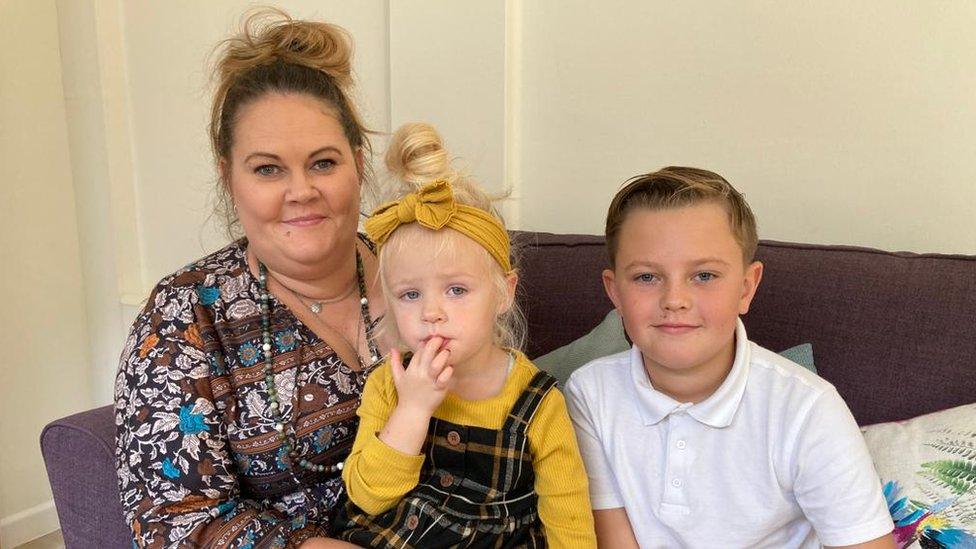
- Published24 July 2022
